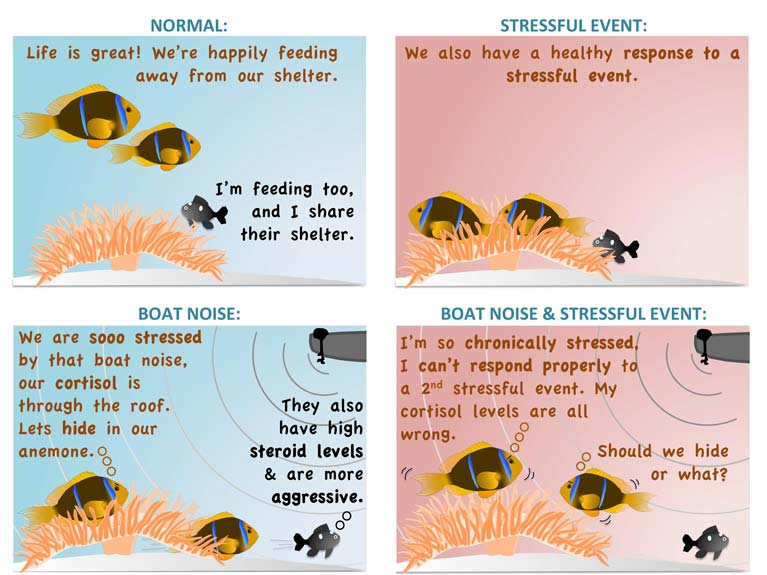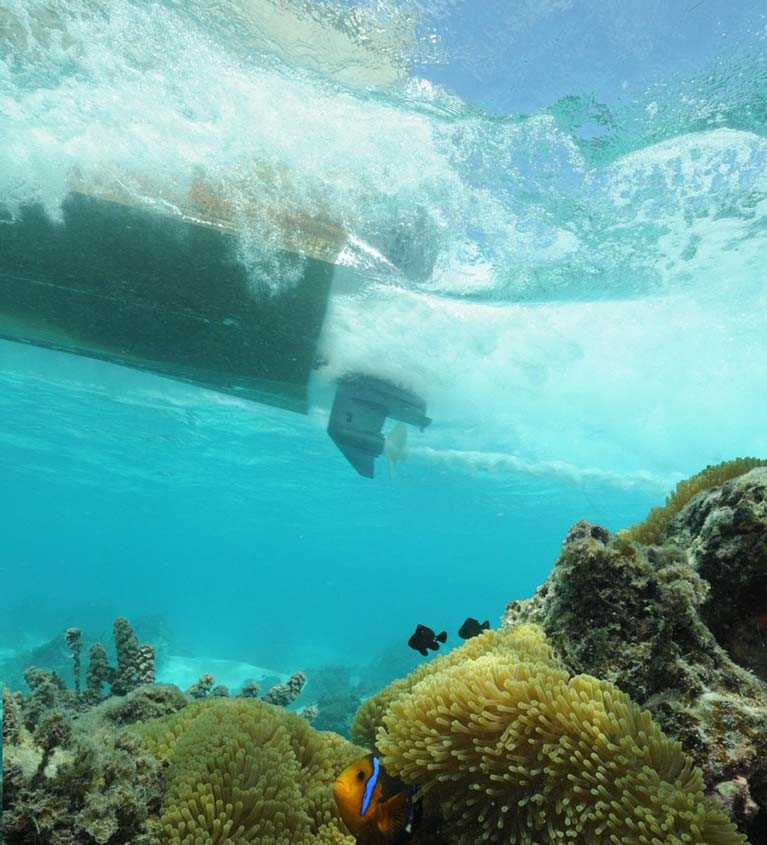Displaying items by tag: engine noise
Terrifying Nemo - New Study on Impact of Boat Engine Noise on Fish Finds Clownfish Severely Bothered
Everyone who has ever seen the Pixar film Finding Nemo knows what a clownfish looks like, but a new study gives some alarming insight into their response to human behaviour.
A study by international scientists on the impact of motorboat engine noise found that clownfish are so bothered by it that they will hide, skip meals and even attack domino damselfish and other neighbours.
The erratic behaviour is the result of hormonal changes caused by the engine noise, the researchers from France, Chile and Britain state.
Working on the reefs around Moorea in French Polynesia, the scientists exposed 40 pairs of clownfish to recordings of natural reef sounds or motorboat noise for up to two days.

The engine reverberations caused clownfish to “hide in the protective tentacles of their host anemone, move less into open water to feed, and to be more aggressive towards domino damselfish that also reside in the anemone”, they found.
They also found that anemonefish which were also affected by the noise were “unable to respond appropriately to a second stressor, putting them at greater risk from threats such as predators and climate change”.
The study found noise-exposed fish had elevated levels of the stress hormone, cortisol.
They also had higher levels of the reproductive hormones testosterone and 11-ketotestosterone, which corresponded with observed behavioural changes.
“These measurable hormones offer a window into complex behaviours and could be used to develop new noise-mitigation tools,” the scientists state.
Associate professor Suzanne Mills at the École Pratique des Hautes Études (EPHE) PSL Université Paris in France, who is lead author, noted that the high cortisol levels after two days of exposure suggest that clownfish become “chronically stressed by motorboat noise”.
“This compromises the stress response system, leaving clownfish unable to mount appropriate responses to further stressful events. If these stressful events include a predator, motorboat noise could have grave implications,” she said.
“Our new findings highlight the need to control man-made noise in marine protected habitats,” she said.
The paper, entitled Hormonal and behavioural effects of motorboat noise on wild coral reef fish, is published in the journal Environmental Pollution.





























































